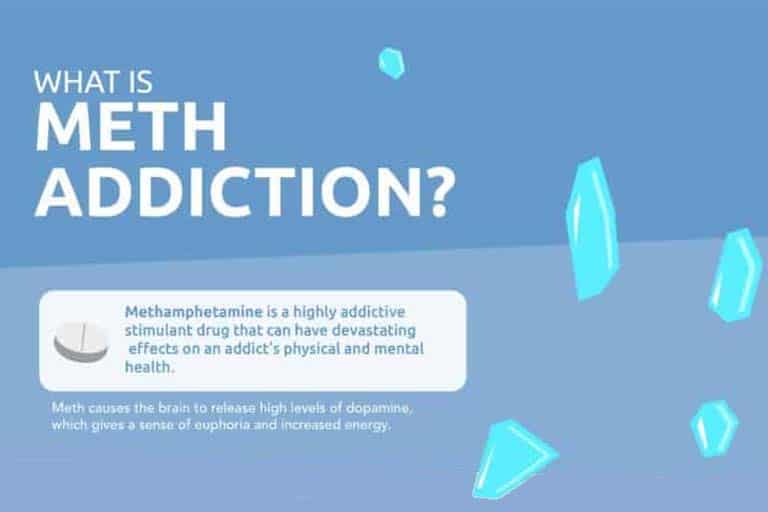The dangerous and destructive effects of meth addiction are well-known. But for some, the road to addiction can often start with casual experimentation or a false belief that the drug will help them cope with personal issues. However, meth alters the brain’s chemistry, resulting in addictive behaviors and damaging physical side effects such as tooth decay and dramatic weight loss. Addiction also strains relationships and leads to dangerous actions to support a drug habit, including robbery and violence. Treatment options exist, but they require a commitment to change and may include therapy, support groups, and medication. It’s important to recognize the signs of addiction and seek help as early as possible before the harmful effects completely take over an individual’s life. Taking preventive measures against addiction is crucial in combating this deadly problem.
Human Body Processing Meth
When a person ingests methamphetamine, their body rapidly absorbs it through the digestive tract and into the bloodstream. Once in the bloodstream, it travels to the brain where it acts on dopamine and norepinephrine neurotransmitters, leading to increased alertness, energy, and euphoria. However, this can also lead to elevated heart rate and blood pressure as well as decreased appetite. The liver then begins to break down the drug, where it is eventually excreted through urine. But this process happens quickly, allowing for a rapid buildup of the drug in the body and increasing the risk of addiction and overdose. It’s important to understand these processes in order to combat methamphetamine misuse and addiction.
How Long Is METH In Your System?
The answer to how long meth stays in your system depends on a variety of factors. Your metabolism, frequency and amount of use, and the type of drug test being administered all play a role in determining how long meth will remain detectable in your body. In general, blood and saliva tests tend to detect meth for a shorter period of time (around 1-3 days) whereas hair follicle tests can detect meth for up to 90 days post-use. It is important to note that heavy or chronic meth use can result in the drug remaining detectable for longer periods of time. Overall, methamphetamine leaves your system relatively quickly compared to other substances, but it is always best to consult with a medical professional for accurate information on detection times. Remember, the best way to ensure that meth is out of your system is to seek help and stop using the drug altogether.
Blood Test for Meth
A blood test for methamphetamine is typically performed as part of a drug screening and can detect the presence of the drug in the bloodstream. The test works by detecting methamphetamines and their metabolites, which are substances produced by the body as it metabolizes the drug. The metabolites have a longer detection window than the actual drug, meaning they can reveal drug use even after the effects of the drug have worn off. A positive result on a blood test for methamphetamine may indicate recent or ongoing use of the drug. It is important to note that these tests can sometimes produce false positives, so further confirmatory testing may be necessary. A healthcare practitioner can order and interpret a blood test for methamphetamine as part of a larger assessment for substance use disorders or as part of an employment or legal procedure.
Saliva Test for Meth
When it comes to detecting Methamphetamine, a saliva test works by detecting the presence of the drug in oral fluid. The test works by collecting a small sample of saliva from the person being tested and then using an immunoassay to detect any drug molecules present. In particular, the antibodies used in this type of test are designed to bind specifically to Methamphetamine, making it possible to accurately determine whether or not someone has recently used the drug. Thanks to this non-invasive method, saliva tests for Methamphetamine and other drugs have become increasingly popular both in workplace testing and legal proceedings.
Hair Test for Meth
Hair follicle testing for methamphetamine, also known as crystal meth, is becoming increasingly common in workplaces and drug rehabilitation programs. But how does it work? Similar to a urine or blood test, a small sample of hair is collected from the individual being tested. Then, the hair sample is analyzed in a laboratory for the presence of methamphetamine and its metabolites. It’s important to note that hair follicle testing can detect use over a longer period of time – typically up to 90 days – compared to other types of drug tests. Additionally, it’s much more difficult to tamper with or falsify results for a hair follicle test. All in all, hair follicle testing offers an accurate, reliable way for individuals and organizations to monitor methamphetamine use.
Urine Test For Meth
Most drug tests involve analyzing urine samples for the presence of certain substances. A urine test for methamphetamine works by detecting the drug in its metabolized form. When a person ingests meth, their body breaks it down into metabolites which are then excreted through urine. The test involves collecting a sample and analyzing it using immunoassay technology to detect the presence of these metabolites. If they are found at high enough levels, the test will return a positive result for meth use. It is important to note that while urine tests can detect recent use of the drug, they do not necessarily indicate current impairment. As metabolites can remain detectable for several days after ingestion, it is possible for a person to test positive without being under the influence at the time of testing. However, repeated detection can indicate ongoing patterns of usage and may require further intervention. Overall, urine tests play an important role in detecting meth use and identifying individuals who may need support in recovery from addiction.
Getting Meth out of your system
If you have been using methamphetamine and are looking to rid your body of it, the most important thing to remember is that there is no quick fix. Detoxing can be a long and difficult process, but there are steps you can take to aid your body in flushing out the drug. First, make sure you are staying hydrated by drinking plenty of water. Next, exercise regularly and eat a balanced diet rich in fruits and vegetables to support your body’s natural detoxification abilities. It can also be helpful to seek out counseling or support groups to help manage withdrawal symptoms and cravings. Though it may not be easy, getting methamphetamine out of your system can lead to improved overall health and well-being. Remember that recovery is possible, and seeking help is always an option.
Seek Professional Help For Meth Detox
The effects of methamphetamine addiction can be devastating, both on the individual and their loved ones. Thankfully, seeking professional detox is a crucial first step in reclaiming one’s health and happiness. At Ethan Crossing, our healthcare professionals can monitor vital signs and administer medications to ease withdrawal symptoms. During detox, individuals also have the opportunity to attend therapy sessions and learn coping skills for managing cravings and triggers. It’s important to remember that addiction is a disease, and professional detox is not a sign of weakness but rather a brave attempt at rebuilding one’s life. It can be scary to reach out for help, but it is ultimately worth it for the chance at lifelong sobriety. Take the courageous step towards recovery today and call Ethan Crossing now!












